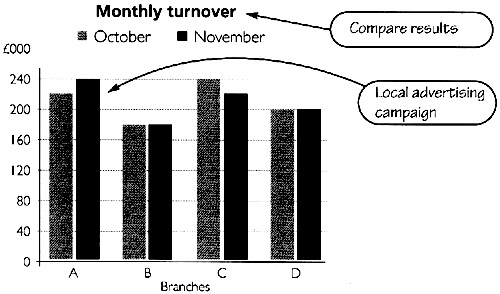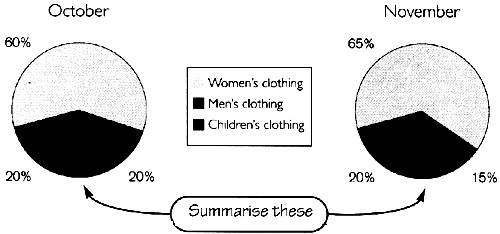第4题:
问答题
Practice 3 Listen to the following passage. Write in English a short summary of around l50-200 words of what you have heard. You will hear the passage only once and then you will have 25 minutes to finish your summary. This part of the test carries 20 points. You may need to scribble a few notes to write your summary. _____________________________________________________________________________________________________________________________________________________________________________________________
正确答案:
【参考答案】
综述内容应包括5个主要点信息和10个次要点信息中的5个。下划线部分为主要点, 斜体部分为次要点。
As Iraq struggles to recover from conflict and severe economic hardship to a society that is once again able to stand on its own two feet, the United nations has convened a meeting on 23, June to ensure that the Iraqis immediate humanitarian needs are met and the transition to longer-term reconstruction is fully underway by the beginning of the next year.
Indeed, such actions and achievements in responding to anticipated humanitarian needs in Iraq have played a crucial role in averting a much larger potential crisis. Even as the conflict was underway, national UN staff continued to carry out their duties. Aid activities under the Oil for Food Programme in Iraq’s three northern govern orates never stopped.1 National staff of the World Food Programme worked to open corridors from Turkey, Jordan and Iran into Iraq.2UNICEF local staff delivered humanitarian supplies and worked to maintain the supply of potable water.3WHO local staff supported Iraqi health professionals.4 Under the Oil for Food Programme, UNDP worked to maintain and restore electric power supplies, especially in the north.5
As of today, more than 800, 000 metric tonnes of food—enough to feed almost all of Iraq’s 27 million people for two months have been dispatched to Iraq.6 An average of 3.5 million litres of water per day is being tankered7 to hospitals, health centres and communities in the south and in the Baghdad area. Basic medicines, vaccines and health supplies have been delivered8 to facilities throughout the country. Agencies have helped repair and restore water, sanitation and power facilities, as well as schools, which have also been receiving essential education supplies.
But great needs remain. Due to the lack of a functioning economy, combined with prolonged reliance on the ration system, virtually all of the population of Iraq will require food aid in the short run in order to survive.9 The Flash Appeal for Iraq, asking for$2. 2 billion to cover needs for six months, was issued in March. Generous donor funding (approximately$900 million), and access to the resources of the Oil for Food Programme ($1. 1 billion), have meant that $2 billion is already available for humanitarian aid for the people of Iraq. The revised humanitarian appeal for Iraq seeks to meet the needs of the Iraqi people up to the end of the year. Given the healthy funding status, only an additional US $259 million is required.
Food aid alone accounts for two-thirds of the aid being requested through the Appeal. While the food sector, accounting for some $1.56 billion, is fully funded,10 funding is still required for equally important interventions in other sectors. Most essential needs must be still met: health care; clean water and sanitation; electricity; infrastructure repair; shelter; mine action and mine awareness; education; food security and agriculture; assistance for internally displaced persons and returning refugees. Given the urgent needs in other parts of the world in much of Africa, Afghanistan, the Democratic People’s Republic of Korea, as well as other places, it is essential that donor countries ensure that contributions to Iraq are in addition to and not in place of— funding for other emergencies.
【录音原文】
As Iraq struggles to recover from conflict and severe economic hardship to a society that is once again able to stand on its own two feet, the United nations has convened a meeting on 23, June to ensure that the Iraqis immediate humanitarian needs are met and the transition to longer-term reconstruction is fully underway by the beginning of the next year.
Indeed, such actions and achievements in responding to anticipated humanitarian needs in Iraq have played a crucial role in averting a much larger potential crisis. Even as the conflict was underway, national UN staff continued to carry out their duties. Aid activities under the Oil for Food Programme in Iraq’s three northern govern orates never stopped.1 National staff of the World Food Programme worked to open corridors from Turkey, Jordan and Iran into Iraq.2 UNICEF local staff delivered humanitarian supplies and worked to maintain the supply of potable water.3 WHO local staff supported Iraqi health professionals.4 Under the Oil for Food Programme, UNDP worked to maintain and restore electric power supplies, especially in the north.5
As of today, more than 800, 000 metric tonnes of food—enough to feed almost all of Iraq’s 27 million people for two months have been dispatched to Iraq.6 An average of 3.5 million litres of water per day is being tankered7 to hospitals, health centres and communities in the south and in the Baghdad area. Basic medicines, vaccines and health supplies have been delivered8 to facilities throughout the country. Agencies have helped repair and restore water, sanitation and power facilities, as well as schools, which have also been receiving essential education supplies.
But great needs remain. Due to the lack of a functioning economy, combined with prolonged reliance on the ration system, virtually all of the population of Iraq will require food aid in the short run in order to survive.9 The Flash Appeal for Iraq, asking for$2. 2 billion to cover needs for six months, was issued in March. Generous donor funding (approximately$900 million), and access to the resources of the Oil for Food Programme ($1. 1 billion), have meant that $2 billion is already available for humanitarian aid for the people of Iraq. The revised humanitarian appeal for Iraq seeks to meet the needs of the Iraqi people up to the end of the year. Given the healthy funding status, only an additional US $259 million is required.
Food aid alone accounts for two-thirds of the aid being requested through the Appeal. While the food sector, accounting for some $1.56 billion, is fully funded,10 funding is still required for equally important interventions in other sectors. Most essential needs must be still met: health care; clean water and sanitation; electricity; infrastructure repair; shelter; mine action and mine awareness; education; food security and agriculture; assistance for internally displaced persons and returning refugees. Given the urgent needs in other parts of the world in much of Africa, Afghanistan, the Democratic People’s Republic of Korea, as well as other places, it is essential that donor countries ensure that contributions to Iraq are in addition to and not in place of— funding for other emergencies.
解析:
暂无解析


